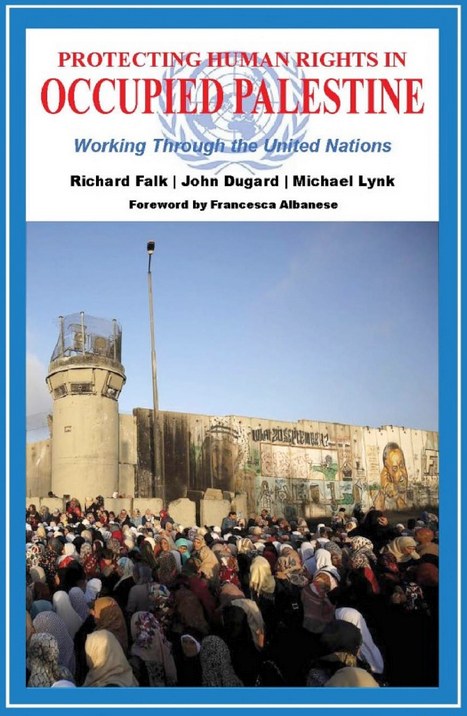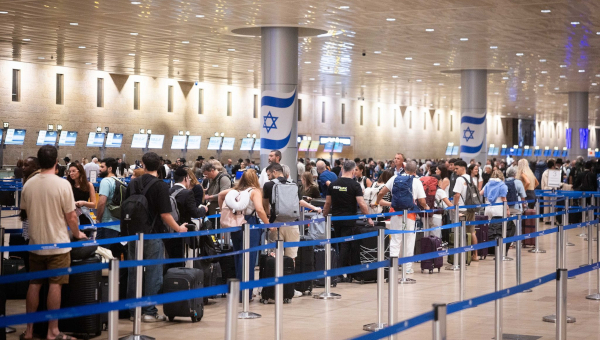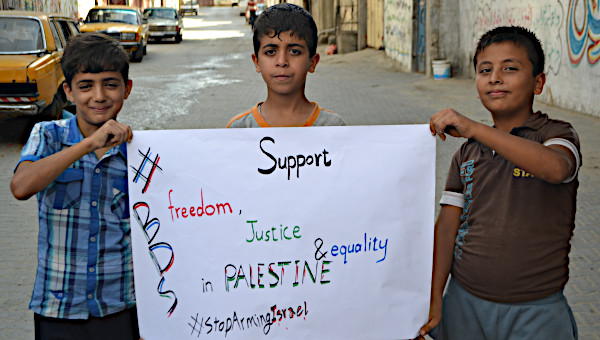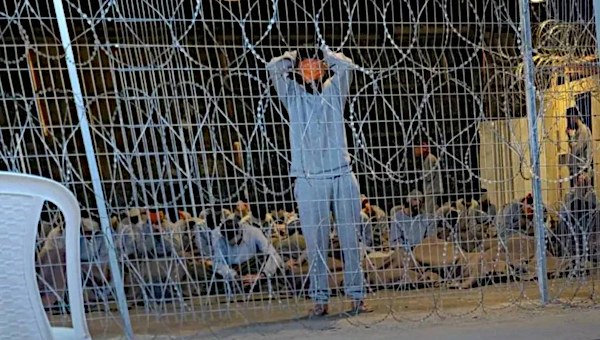What Does the US Get Out of Shielding Israel From Accountability at the UN?
In his eloquent 2012 memoir, Kofi Annan, the former secretary general of the United Nations, wrote that the failure of the UN to achieve lasting peace in the Middle East was a deep internal wound as old as the organization itself. In his words, it has been “a painful and festering sore consequently felt in almost every intergovernmental organ and Secretariat body.” The ramifications of this paralysis, he observed, are global: “No other issue carries such a powerful symbolic and emotional charge affecting people far from the zone of conflict.” And, with more than a trace of despair, Annan pointed to the protective role of the United States in shielding Israel from accountability at the UN Security Council as a leading source of this failure:
“Even when the Council took positions, it did not establish mechanisms to enforce its will. The United States wielded its veto to protect the Israelis even from reasonable international scrutiny and pressure, paralyzing the Council on one of the world’s central conflicts.”

More than a decade later, the source for Annan’s consternation continues to play out. On Feb. 20, the Security Council unanimously adopted a non-binding and meek presidential statement, expressing “deep concern and dismay” with the announcement by the new Israeli government earlier this month that it intended to legitimize nine settlement outposts and approve more than 10,000 new housing units in settlements in the occupied West Bank. The statement was adopted after the US threatened to veto a much stronger – and legally binding – resolution proposed by the United Arab Emirates, one of 10 rotating members of the Security Council.
Flagrant Violation Under International Law
The UAE resolution would have condemned the Israeli settlements as a “flagrant violation under international law,” echoing earlier resolutions adopted by the Security Council. According to sources close to the Security Council proceedings, the resolution proposed by the UAE had the endorsement of 12 of the 15 council members, with the United Kingdom and Albania on the fence and only the US prepared to vote against it.
In contrast to the shelved resolution – and many prior council resolutions – the mostly symbolic presidential statement made no mention of the illegality of the Israeli settlements, or to the Security Council’s long-standing principle regarding the inadmissibility of the acquisition of territory by force, or to Israel’s ongoing annexation of Palestinian territory. Likewise, language from the UAE resolution that Israel must cease all settlement activities was absent from the statement. The longest paragraph in the statement focused on Palestinian terrorism but made no corresponding critique about the rising levels of violence committed by the Israeli military against Palestinians in recent years. In the first two months of 2023 alone, at least 62 Palestinians have been killed by the Israeli military or police, or by Israeli settlers in East Jerusalem and the West Bank. During the same period, 10 Israelis and a Ukrainian have been killed by Palestinians.
Various news reports indicated that US Secretary of State Antony Blinken had negotiated a background understanding to secure the withdrawal of the UAE draft resolution and the substitution of the much tamer presidential statement. The Israeli government will reportedly be permitted to move forward with many of its currently proposed new housing units and the legitimization of most of the designated settlement outposts, but would pause for a minimum of three months before proceeding with this settlement expansion. Although these settlement outposts are illegal even under Israeli law, they have flourished because the Israeli government has flouted its own laws. Once established, the Israeli military has defended these outposts, and the Israeli government has provided them with roads, utilities and other services. Apparently, Israel has also agreed to reduce the number of Palestinian home demolitions, evictions and military raids during this pause period.
The US is reported to have committed to the Palestinian Authority that it will approach Israel about re-opening its consulate in East Jerusalem that was closed by the Trump administration. Media speculation also suggested that Palestinian President Mahmoud Abbas would be invited to the White House, while Israeli Prime Minister Netanyahu might have to wait a while longer for his invitation.
If this background understanding was meant to bring calm before the upcoming holidays of Ramadan, Passover and Easter, subsequent events have proven otherwise. On Feb. 22, the Israeli military killed 11 Palestinians and wounded more than 100 others in the Old City of Nablus during a daytime raid. Israel’s settlement planning council at the same time approved more than 7,000 housing units, which already exceeds the total – 4,427 units – approved in all of 2022.
Instead of condemning these moves, Israel’s centrist opposition leader and former Prime Minister Yair Lapid criticized Netanyahu for agreeing to the purported settlement pause. Ha’aretz quoted Lapid as saying that he “was surprised that the government agreed to the freeze. We never agreed to this, despite repeated requests from the Americans.” On the other hand, Netanyahu’s far-right allies in the new government, particularly Itamar Ben Gvir and Betzalel Smotrich, were relatively quiet about the pause, indicating that they understood the prevailing American-Israeli quid pro quo on the settlements.
UK, France, Germany, Italy: “Deeply Troubled” by Israel’s Settlements
The absence of any reference to the illegality of the Israeli settlements in the Security Council’s presidential statement reflects the US diplomatic muscle in striving for the lowest common denominator. On Feb. 13, the day after Israel made its settlements announcement, both the European Union and a spokesperson for UN Secretary General Antonio Guterres issued critical statements, expressly affirming that the Israeli settlements violate international law. The march backwards began the next day. The US joined a statement with the UK, France, Germany and Italy, which said that they were “deeply troubled” by Israel’s settlement announcement, but made no reference to the settlements’ illegality. By Feb. 16, the US had turned its attention to derailing the UAE resolution; a State Department briefing stated that it would be “unhelpful” to achieving an elusive two-state solution. The diplomatic effort to shelve the UAE resolution reflects the prevailing official American position that the Israeli occupation of Palestine should not be adjudicated at the United Nations – where there is strong opposition to the occupation, primarily from counties in the Global South – and that the only path to a durable peace is for Israel and the Palestinians to negotiate directly with each other, without the guarantees of international law and regardless of the overwhelming military, economic, political and diplomatic advantages possessed by Israel, to say nothing of the bleak track record of the moribund “peace process” since Oslo.
Since 1973, the United States has cast 81 vetoes at the UN Security Council, far more than any other permanent member; Russia and the former Soviet Union is in second place with 38 vetoes during that time period. More than half of these American vetoes, 42, have been used to scuttle resolutions critical of Israel: 32 vetoes dealt with the Israeli occupation of Palestine, while the other 10 defeated resolutions critical of Israel’s invasions and occupation of Lebanon. In each case, the US was the only permanent member of the Security Council casting a veto. No other permanent member of the Security Council has ever vetoed a resolution critical of Israel or the Israeli occupation of Palestine over the past 50 years. In his 2020 memoir, Barack Obama lamented the discomforting position that the US regularly found itself in during his presidency when defending Israel at the United Nations and other international forums:
“… just about every country in the world considered Israel’s continued occupation of the Palestinian territories to be a violation of international law. As a result, our diplomats found themselves in the awkward position of having to defend Israel for actions that we ourselves opposed.”
To be sure, the US has still regularly enabled the Security Council to adopt resolutions critical of Israel – 77 in total since 1967. These resolutions have condemned the Israeli annexation of East Jerusalem and the Syrian Golan Heights; emphasized the legal principle that the acquisition of territory by force or war is inadmissible; and stated that the Fourth Geneva Convention of 1949, which protects the civilian population in occupied territory, applies in full to the West Bank, including East Jerusalem and Gaza. In 1980, the Security Council, with the Carter administration abstaining, adopted Resolution 476, which “reaffirms the overriding necessity for ending the prolonged occupation of Arab territories occupied by Israel since 1967” and “strongly deplores the continued refusal of Israel, the occupying power, to comply with relevant resolutions of the Security Council and the General Assembly.” One might ask, if the Security Council and even the US deemed the Israeli occupation to have already been “prolonged” and requiring a swift conclusion by 1980, after only 13 years, how should it be labeled in 2023, after almost 56 years?
However, while the US permitted these resolutions critical of Israel to be passed by the Security Council, it has also used its threat of a veto to thwart the ability of the council to enforce any of these resolutions. As Ban Ki-moon, Annan’s successor, wrote in 2021 after his own retirement as secretary general, “political cover provided by successive US governments to Israel is partly to blame for this lack of accountability.” Indeed, the unwillingness of the US to allow the Security Council to even censure Israel has only grown in recent years. Since February 2009, it has allowed the council to adopt only one resolution critical of Israel, which was passed in the final weeks of the Obama administration, with the US abstaining. For the past two decades, American administrations have regularly endorsed the two-state solution, while also insisting there must be no consequences for Israeli actions that have made that objective impossible. The disturbing reality in the occupied Palestinian territory is contrary to everything the US proclaims to stand for, yet its indispensable role in shielding Israel from any accountability at the UN says that America’s interests lie elsewhere.
The sharpest edge of American protection for Israel at the Security Council has come in the form of resolutions condemning Israeli settlements. The settlements are the engine of the Israeli occupation, the “facts on the ground” for Israel’s looming quest to annex the West Bank, and the source of many of the human rights violations against the Palestinians living in East Jerusalem and the West Bank. The illegality of the Israeli settlements is also one of the most settled issues in modern international law, having been affirmed by the International Court of Justice, the UN General Assembly, the UN Human Rights Council, the International Committee of the Red Cross, the High Contracting Parties to the Fourth Geneva Convention, Amnesty International and Human Rights Watch, among many others. In December 2016, the Security Council adopted Resolution 2334, with the Obama administration’s abstention, which stated that the settlements are “a flagrant violation under international law,” and demanded that Israel “immediately and completely cease all settlement activities.” The resolution also requested the UN secretary general report to the Security Council every three months on its implementation.
The 24 quarterly reports delivered to the Security Council since then, by either Guterres or the UN special coordinator for the Middle East peace process, have all stated that Israel has taken no steps to comply with its obligations under Resolution 2334. When it was adopted a little over six years ago, there were approximately 400,000 Israeli settlers in the West Bank and another 215,000 in East Jerusalem. Today, there are 500,000 Israeli settlers in the West Bank, and around 235,000 in East Jerusalem.
If Israel, as an acquisitive occupying power, understands that no consequences will flow from its mushrooming facts on the ground, then there should be no expectations that any of the stated objectives of the milquetoast presidential statement of Feb. 20 – the Security Council’s “unwavering commitment to the vision of the two-State solution where two democratic states, Israel and Palestine, live side by side in peace” – will ever be achieved. As Shibley Telhami wrote in 2021 about the sui generis relationship between the US and Israel, “If an American president cannot leverage this extraordinary and unprecedented support to advance core American values, what hope is there for succeeding anywhere else?” •
This article first published on the DAWN website.





